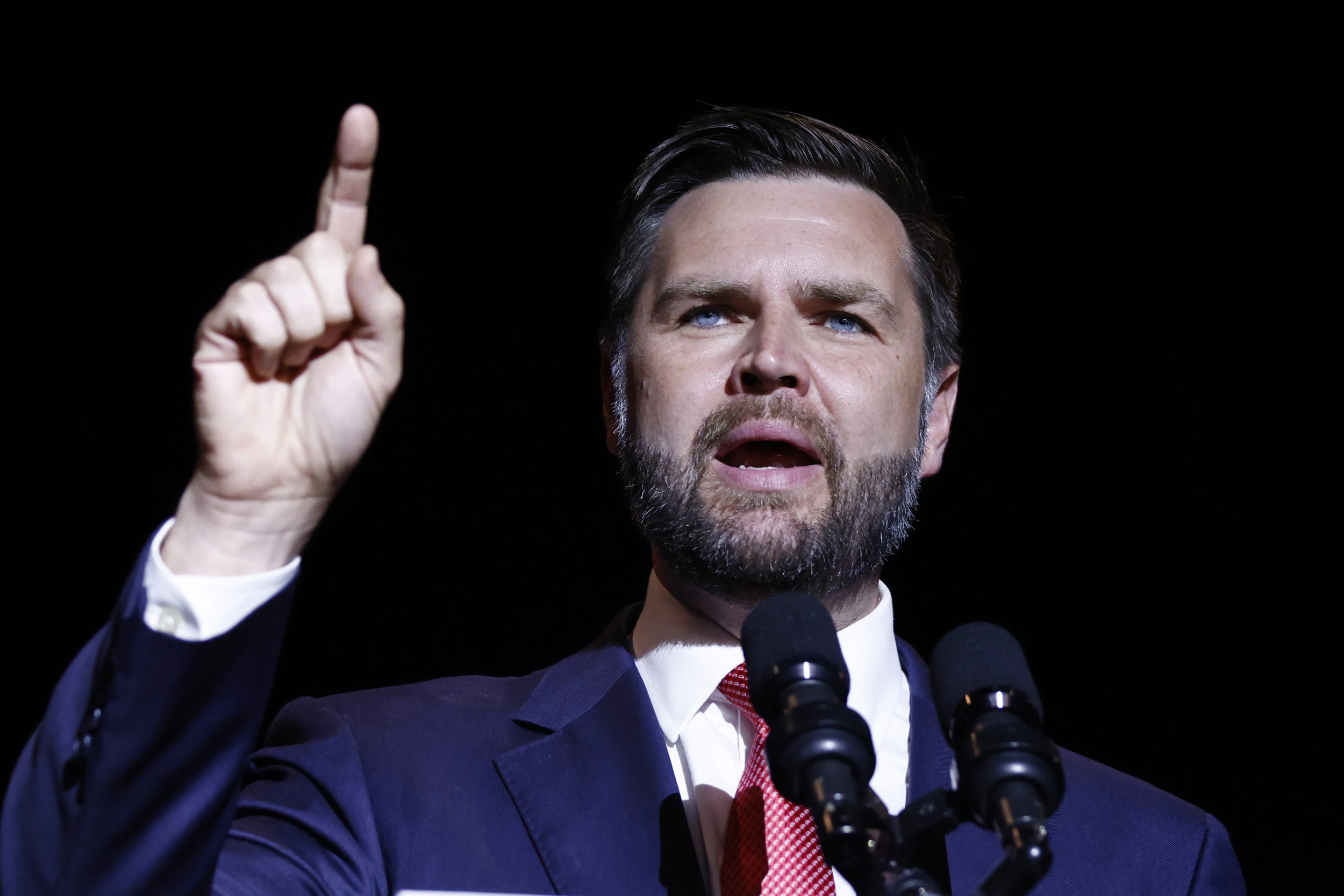JD Vance is the least liked VP nominee in decades, according to polls
JD Vance is the least liked VP nominee in decades, according to polls

www.newsweek.com
JD Vance is the least liked VP nominee in decades, according to polls

JD Vance is the least liked VP nominee in decades, according to polls

JD Vance is the least liked VP nominee in decades, according to polls
